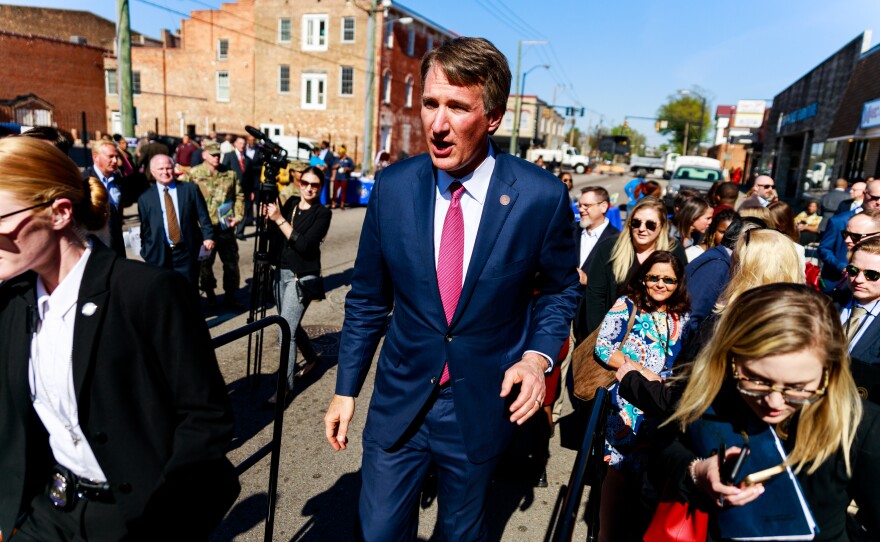Gov. Glenn Youngkin is more likely than his Democratic predecessor, former Gov. Ralph Northam, to appoint men and white people to leadership state boards and commissions.
But critics say the data drives home the point that Youngkin isn’t interested in diversity, equity and inclusion, reinforcing recent comments from Martin Brown, his chief diversity officer, that “DEI is dead.”
A law passed in 1995 requires governors to publish aggregate data on the race, gender and national origins of appointments to dozens state boards and commissions, ranging from the State Board of Education to the State Milk Commission. The boards play an important role in Virginia government by developing regulations, issuing professional certifications and sanctions — and implementing laws passed by the General Assembly.
Nearly 75% of the 735 people Youngkin appointed to state boards last year listed their race as caucasian, up from 63% in Northam’s first year in office. Sixty percent of Youngkin’s picks identified as male, compared to 53% in Northam’s first year.
Youngkin’s picks were more likely to hail from overseas; 8% of them listed other countries as their national origin, compared to less than 1% in Northam’s first year.
Gender differences also appeared in the men’s leadership appointments, according to data VPM News obtained via a public records request comparing the outgoing Northam administration on Dec. 1, 2021 to Youngkin’s administration as of Sept. 1, 2022.
Six members of Northam’s 11-person Cabinet identified as female, while Youngkin’s Cabinet is 64% male. All but two members of both governors’ 11-person Cabinets were listed as white.
Youngkin’s appointments to head state agencies were also whiter and more male-dominated compared to Northam’s picks at the time the data was captured.
Youngkin’s spokesperson did not respond to requests for comment.
State Sen. Lamont Bagby (D–Richmond), who leads the General Assembly’s Black caucus, said the numbers weren’t surprising because Youngkin “already told us who he is and what he thinks.”
He pointed to a series of controversial statements by Youngkin appointees: a former health commissioner who denied the well-establish link between race and maternal mortality; a pick for the University of Virginia board of trustees who attacked campus diversity efforts; and Brown’s comments last week at Virginia Military Institute saying it was time to “kill the cow” of DEI.
Bagby said he’d heard from unspecified state employees worried Youngkin might punish their efforts to build a more diverse workforce.
“Are they offending the governor by taking a close look at the number of women that are considered for positions, the number of Black individuals that are in leadership?” Bagby said.
The Virginia NAACP, the Asian American and Pacific Islander Caucus, Virginia Legislative Black Caucus and Virginia Latino Caucus have all called for Brown’s resignation.
Lisa Sales, Virginia chapter president of the National Organization for Women, pointed to research showing gender and racial diversity can improve organizational performance. And she called for a deeper study on salary disparities across gender and race.
“If the governor is not interested in the full participation of women and people of color, then he is not interested in the growth and success of Virginians and the productivity of our state as a whole,” Sales said in an email.
Those sentiments don’t appear to be shared by Brown, who is mandated by a 2020 state law to “promote inclusive practices across state government.” Brown told the audience at VMI that the focus on equity came at the expense of achievement.
A spokesperson for the governor told the Richmond Times-Dispatch that Youngkin would not ask for Brown’s resignation.



